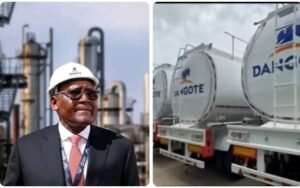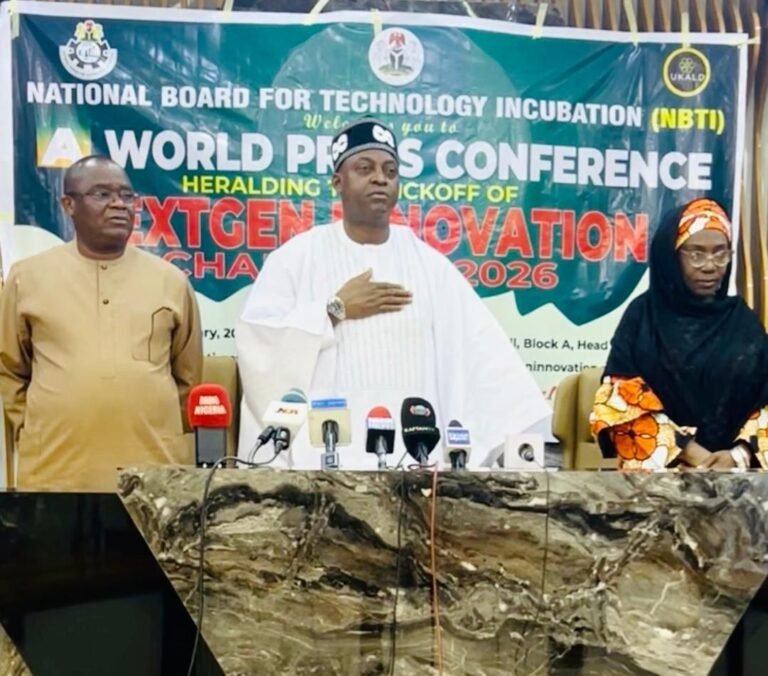
Dangote Refinery Unveils CNG-Powered Fleet, Set to Disrupt Nigeria’s Fuel Distribution Landscape
By Gambo Jagindi
In a bold move likely to reshape the nation’s petroleum supply chain, Dangote Refinery has launched a fleet of 4,000 Compressed Natural Gas (CNG)-powered trucks, inaugurating a new era of direct fuel delivery to filling stations across Nigeria. The initiative, unveiled amid high expectations, promises to cut logistics costs, eliminate intermediaries, and lower energy expenses for countless Micro, Small, and Medium Enterprises (MSMEs).
Speaking on the development, industry leaders highlight the strategic significance of Dangote’s direct-to-station distribution model. “By bypassing traditional middlemen,” says an industry analyst, “Dangote Refinery is positioning itself as a game-changer in Nigeria’s fuel retail sector.”
Deployment of CNG-powered trucks is projected to reduce transportation expenditures significantly.
Lower fuel delivery charges could ease operational burdens on millions of businesses and direct supply aims to foster pricing clarity in Nigeria’s fuel market.
Aliko Dangote underscored the broader vision driving this initiative. “This isn’t merely a commercial strategy; it’s a national imperative,” he said, emphasizing commitments to affordable, sustainable fuel access for Nigerians.
CNG, touted as a cleaner fuel alternative, aligns with global pushes for reduced carbon footprints. Dangote’s adoption of CNG-powered trucks reflects growing interest in environmentally considerate energy solutions.
Dangote Refinery represents a cornerstone of Nigeria’s quest for petroleum sector self-sufficiency. With an emphasis on optimizing supply chains, this launch fits broader narratives of economic resilience and industrial growth.
Observers also note operational scalability, regulatory harmonization, and market dynamics as factors influencing the initiative’s success.
The Dangote Refinery, a monumental $19 billion investment situated in Lagos, Nigeria, is poised to revolutionize the country’s energy landscape. As the world’s largest single-train refinery, this behemoth is expected to transform Nigeria’s oil and gas industry, bolstering economic growth and positioning the nation as a key player in Africa’s energy market. With a processing capacity of 650,000 barrels per day, the refinery heralds Nigeria’s quest for fuel self-sufficiency, aiming to end the country’s reliance on imported refined petroleum products and saving billions in foreign exchange.
The economic implications are profound. Analysts project the Dangote Refinery will contribute over $10 billion annually to Nigeria’s GDP, creating over 70,000 jobs directly and indirectly. This isn’t merely about economic metrics; it’s about reshaping Nigeria’s energy narrative. The refinery has already marked significant milestones, exporting its first gasoline cargo to Asia and jet fuel to Saudi Aramco, signaling Nigeria’s emergence as a refined product exporter. Such moves underscore the facility’s potential to stabilize fuel prices across West Africa, enhancing Nigeria’s geopolitical standing in the region.
Driving these developments is Nigeria’s shifting energy policy landscape, aligned with President Bola Tinubu’s Renewed Hope Agenda focusing on economic stability and development. Initiatives like the Naira-for-Crude scheme aim to tackle fuel supply challenges amid global price volatility. Meanwhile, Nigeria is exploring diversification into renewables like solar and wind, sitting alongside traditional fossil fuel investments. The adoption of Compressed Natural Gas (CNG) – touted for its environmental benefits and cost efficiency – is gaining traction globally, with Dangote Refinery deploying 4,000 CNG-powered trucks for fuel distribution, a move touted as a game-changer for logistics and energy costs.
Yet challenges loom. Securing sufficient local crude oil supplies remains a hurdle, navigating Nigeria’s complex oil and gas regulations demands dexterity, and balancing energy production with sustainability goals is an ongoing debate. Pricing controversies swirl around petrol pricing models and subsidy removal impacts, highlighting intricacies in Nigeria’s energy economy. Nonetheless, observers see vast opportunities – from significant job creation to stimulating sectors like petrochemicals and manufacturing, cementing Nigeria’s position in regional energy markets.
In West Africa, the Dangote Refinery could emerge as a pivotal energy hub, with implications stretching beyond Nigeria’s borders. As Africa navigates its energy future amid global transitions, facilities like Dangote Refinery spotlight the continent’s potential industrial heft. How Nigeria leverages this asset amid global energy shifts and domestic imperatives will likely shape narratives of growth, sustainability, and regional influence.
Jagindi, a public affairs analyst/ digital media publisher writes from Abuja jagindi2016@gmail.com, +2347065466653







